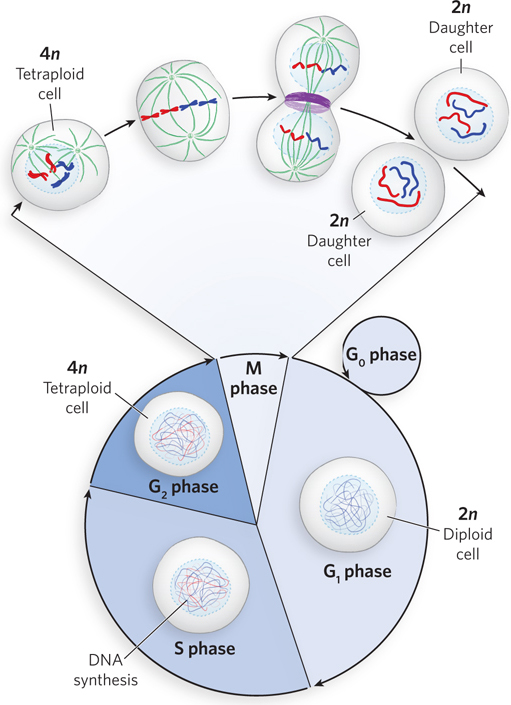
The eukaryotic cell cycle. Cells start in G1 phase and progress to S phase, in which chromosomes are duplicated. In G1, cells are diploid (2n, where n is the species’ chromosome number). After S phase, cells are tetraploid (4n) and enter G2 phase (chromosomes are not visible in interphase; they begin to condense and become visible in the microscope at the beginning of M phase). In M phase, the duplicated chromosomes are equally divided, and the cell splits (by cytokinesis) into two daughter cells, each 2n. These cells can enter a quiescent phase, G0, which removes them from the cell cycle, or can undergo further division. The duration of each phase varies with species and cell type. A typical human cell in tissue culture has a cell cycle of about 24 hours: G1 phase, 6– 6– 3–